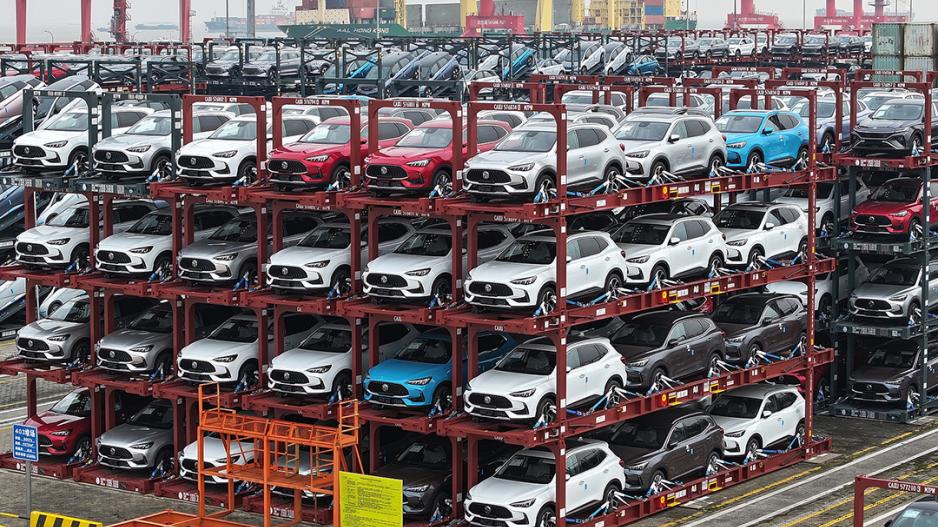Canada Imposes 100% Tariffs on Chinese Cars, Escalating Trade Tensions
New Canadian Tariffs on Chinese Imports Target Vehicles, Steel, and Aluminum, Prompting Strong Response from Beijing
Canada has announced the imposition of additional 100% tariffs on imported cars from China starting in October, citing "unfair competition" by the country. This move has angered Beijing, which expressed its "strong dissatisfaction."
"China does not adhere to the same rules as other countries," argued Canadian Prime Minister Justin Trudeau during a press conference in Halifax on Monday.
Ottawa will also impose an additional 25% tariff on imported steel and aluminum from China starting October 15.
In response to the "challenge" posed by Chinese industries, which Trudeau claims engage in "unfair competition" contrary to "market" rules, the Canadian government is taking action in "coordination with other global economies," the Prime Minister added.
The new tariffs specifically target passenger cars, trucks, electric buses, delivery vans, and hybrid models.
"We must defend Canadian jobs and interests," insisted Justin Trudeau.
China expressed its "strong dissatisfaction" and "firm opposition" to these decisions, according to a statement released today by the Chinese embassy in Canada. The statement added that Beijing would take "all necessary measures" to protect Chinese businesses.
This latest escalation in tensions between China and Canada occurs against a backdrop of growing trade disputes with Western countries, which accuse Beijing of undermining competition in related sectors, such as wind energy, photovoltaic panels, and batteries.
Last week, the EU confirmed its intention to impose additional tariffs on electric cars imported from China for an initial period of five years.
Brussels argued that Chinese electric vehicles have artificially low prices due to state subsidies, distorting competition and harming the competitiveness of European car manufacturers.
The additional tariffs, which could reach up to 36%, will replace the temporary tariffs imposed in early July.
Beijing has repeatedly threatened to retaliate and has launched an investigation into EU trade practices, accusing them of unfair competition, particularly focusing on imported European dairy products.
Determined to curb China's advance in the electric vehicle sector, the United States also announced a quadrupling of tariffs (from 25% to 100%) on imported Chinese electric cars. Economic competition with China is also a central issue in the U.S. presidential campaign.
In recent years, dozens of pioneering Chinese companies have emerged in the field of electrification, competing fiercely with foreign manufacturers who struggle to adapt to the new realities. These companies are now accelerating their expansion overseas.
Canada has made significant efforts in recent years to attract electric vehicle manufacturers, particularly by offering tax incentives, promoting its clean energy production, and highlighting the country's resources in rare earth elements.






